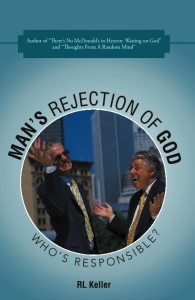Does Christianity Have a PR Problem?
I’m currently reading Man’s Rejection of God: Who’s Responsible? by RL Keller. Before I knew anything about the book I was greeted by this quote from Mahatma Gandhi, which appears on the back cover:
I like your Christ. I do not like your Christians. Your Christians are so unlike your Christ.
While it is uncertain if this is word-for-word what Gandhi said, there is no missing his indictment of Christian people. Is what Gandhi said true?
Today I began research for this article by typing into Google, “why are Christians…” The first thing that Google Chrome filled in is “so mean,” which garnered about 88,300,000 results within 0.61 seconds. When I typed in “why are Christians hypocrites,” I received 2,490,000 results in 0.48 seconds, which included links to an article about hypocrites in the church by Focus on the Family and an article on The Huffington Post from November 2013 regarding Bill Maher raging at “selfish” Christians who don’t tip waiters.
Do Christians have a difficult time relating to people outside their faith? Why are they seen as judgmental and hypocritical? Does Christianity have a PR problem?
Some of what Keller had to say made a lot of sense. He points out in his book that while our transformation into a new person once we receive Christ into our hearts is instantaneous, our conversion takes time. We must strive to be like Christ in everything we say and do, knowing full well that we are going to fail at times. I’ve seen that in my own life. My heart is in the right place, but what I say and do isn’t always the right thing. I can teach a Sunday school lesson on the importance of self-control and being slow to anger, then lose my temper with one of my children a few hours later. Emulating Christ is tough.
That’s the main motivation for me spending more time in prayer and reading Scripture this year. I don’t want to be a “do as I say, not as I do” type of parent. I don’t want to listen to the Word of God and then live a life not doing what it says. Every day, I hope to work closer to thinking “What Would Jesus Do?” and acting accordingly.
Our approach toward others needs to be more Christlike if we hope to make a difference in the world. As we seek to fulfill Christ’s instruction to us as stated in The Great Commission, we must use the love, forgiveness, and tolerance Jesus displayed throughout the Gospels when dealing with everyone. He didn’t treat non-believers differently. Why should we?


